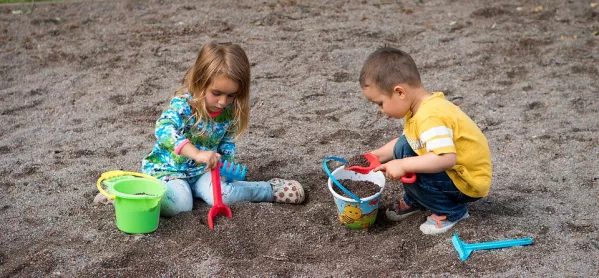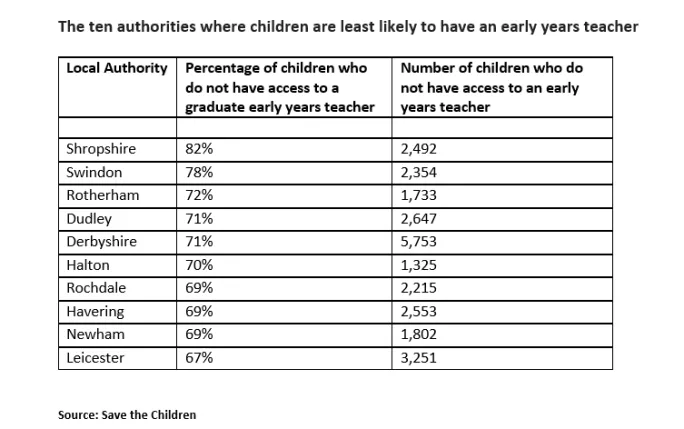A shortage of nearly 11,000 graduate early years teachers in England risks “letting down our next generation”, according to a children’s charity.
Save the Children warns that the lack of early years teachers leaves over 300,000 children at greater risk of falling behind before they reach school - and staying behind throughout their lives.
Just 36 per cent of private, voluntary and independent (PVI) nurseries have a qualified early years teacher on their team, the charity’s analysis of government data shows.
It also reveals significant disparities between areas, with children in Sunderland five times more likely than those in Shropshire to go to a nursery with a qualified early years teacher or equivalent.
The local authorities where the lowest proportion of preschool children go to a nursery with a qualified early years teacher are Shropshire, Swindon and Rotherham, while the highest percentages of children with qualified teachers are in Sunderland, Kensington and Chelsea, and Islington.
‘Letting down our next generation’
“All of our little ones should have access to nursery care led by an early years teacher. Without action, we’ll be letting down our next generation,” Steven McIntosh, Save the Children’s director of UK poverty policy, said.
The new analysis comes after Damian Hinds, the education secretary, pledged to halve the number of pupils starting school behind in talking and reading skills by 2028.
But there has been concern over the DfE’s decision to backtrack on a commitment to carry out a study into increasing the number of graduates working in early years in disadvantaged areas - the government has said that instead it will be investing £20 million in professional development activities.
Mr McIntosh said: “Children who start behind, stay behind. But high-quality childcare, led by graduate early years teachers, can ensure children are ready for school. So instead of lowering ambitions for childcare quality, the government should keep its promise to address the crisis in training, recruiting and retaining these underpaid and undervalued teachers.”
The charity asked the DfE for the number of private, voluntary or independent settings that employed early years teachers, teachers or staff with early years professional status.
Nadhim Zahawi, children and families minister, said: “The quality of early years childcare has risen since 2010, with 94 per cent of providers rated ‘good’ or ‘outstanding’. This government wants every child to have the best start in life, which is why we are investing more than any other in supporting early years education and childcare - around £6 billion a year by 2020.
“Most recently the secretary of state announced a £20 million fund to provide training and professional development for early years staff in disadvantaged areas to increase their ability to support children’s early speech and language development.
“Save the Children’s claim is misleading. University study is just one route into the early years workforce. There are over 250,000 dedicated professionals in the private or voluntary early years workforce, with many coming from apprenticeship or on-the-job training routes.”





